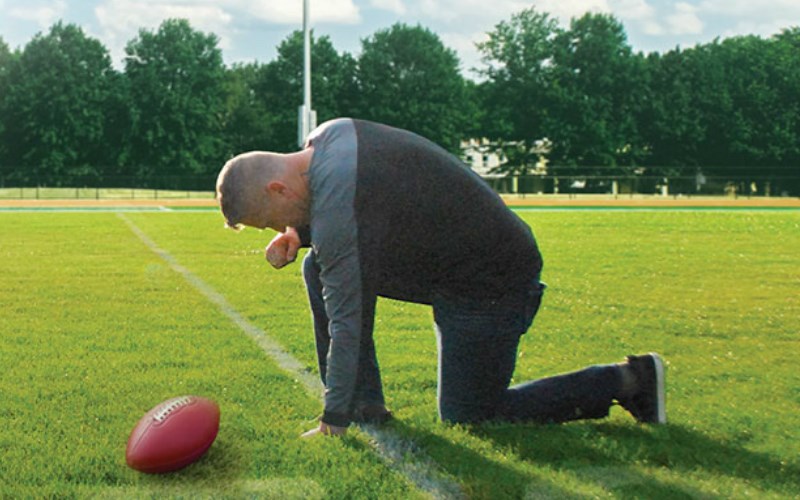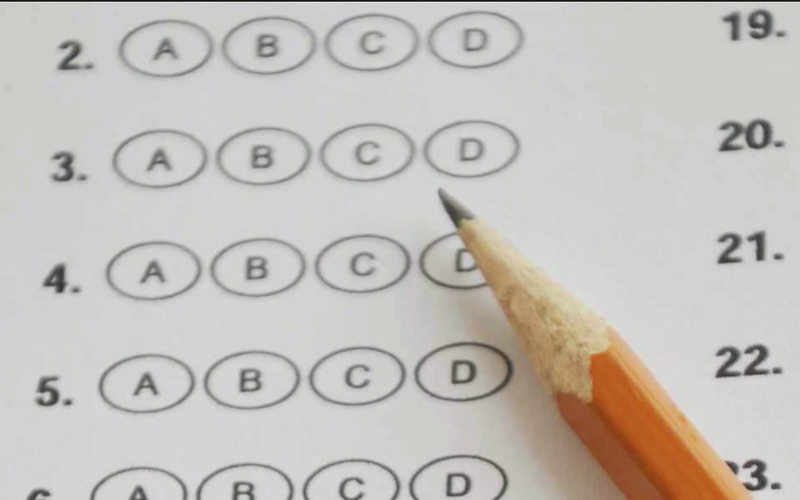Coach Joe Kennedy, who in 2015 was fired from Bremerton High School in Washington for praying on the field after games, had been told not to by school officials – but the coach insisted he had the right to pray. Initially, Kennedy prayed alone and knelt for 15-30 seconds, but some students voluntarily joined him at times.
The case has been in and out of court for years. The Ninth U.S. Circuit Court of Appeals ultimately ruled in favor of the school in mid-2021, but the case then was appealed to the highest court in the United States. At issue before the Supreme Court now is whether speech and religious rights under the First Amendment protect Kennedy's brief prayer following games, and whether the Establishment Clause justifies his dismissal.

"The Ninth Circuit's decision really hinged on the fact that Coach Kennedy was a public school employee, and that if people in the stands or in the public in general could see him praying, then somehow they might interpret that as the government formally establishing religion, as ridiculous as that sounds," says attorney Mike Berry of First Liberty Institute, the law firm representing Coach Kennedy. (See details about Kennedy's case)
"We need to correct that and we also need to vindicate Coach Kennedy's rights and get him reinstated as a coach and back out on the field as soon as possible."
A beefed-up bench
In recent days, Kennedy has two prominent religious liberty groups file friend-of-the-court briefs on his behalf with the high court. One of those carries the weight and endorsement of some current NFL players – Minnesota Vikings QB Kirk Cousins and Chicago Bears QB Nick Foles among them – and former Los Angeles Rams defensive end Jack Youngblood.
"American citizens do not give up the right to personal prayer when they accept employment with a public employer," John Bursch, Senior Counsel for Alliance Defending Freedom, explains in a press release. "As our brief explains, the First Amendment protects prayer because it is private speech, not government speech."

The ADF attorney argues that the Ninth Circuit "wrongly reasoned" that the coach's on-field prayers were not his own, but the government's.
"… If he had instead been saying a silent prayer in the school cafeteria before lunch, no one would have thought of attributing it to the school district," says Bursch. "The fact that he prayed after a game doesn't change the fact that his speech is just as protected by the First Amendment."
Orlando-based Liberty Counsel, like ADF, also filed a brief in support of Coach Kennedy, arguing Bremerton School District officials would have permitted him to engage in other speech on the field – so their censoring of Kennedy's religious expressive speech constitutes viewpoint discrimination and demonstrates "hostility" toward religion.

"The same coach could have knelt on the field for a myriad of secular reasons without incident," says Liberty Counsel founder and chairman Mat Staver in a press release. "The fact that the school fired the coach because he silently prayed is blatant discrimination based on religious viewpoint."
Staver sees the Kennedy case as an opportunity for the Supreme Court to affirm that every American has the right to engage in individual religious expression without fear of punishment.
Family Policy Alliance of New Mexico also filed an amicus brief with the U.S. Supreme Court in favor of Kennedy.
"We all suffer when our First Amendment freedoms are violated," said Jodi Hendricks, executive director for Family Policy Alliance of New Mexico in a statement to AFN. "A free society should not single out a person's religious speech for unfavorable treatment."
The case is filed as Kennedy v. Bremerton School District. A date has not been set for oral arguments at the Supreme Court.







